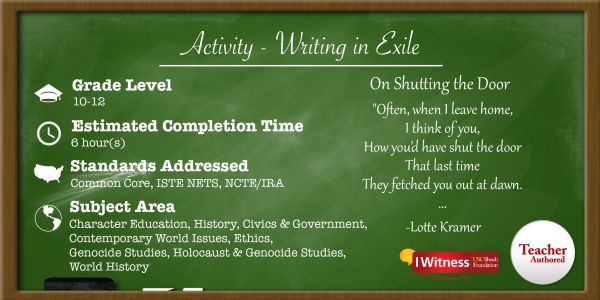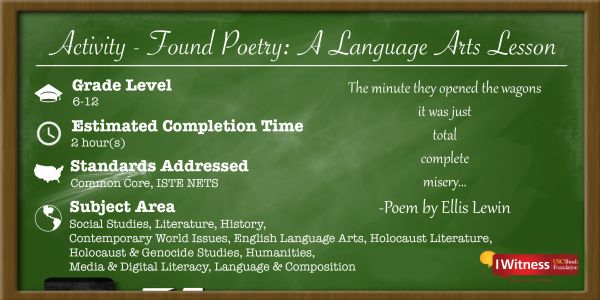Powerful Poetry: Three Activities to Help Students Connect with History
This month – National Poetry Month in the U.S. – is a great time to explore just how powerful words can be. When it comes to understanding difficult moments in history, poetry and writing can help students process and express their own thoughts about the world. Explore these three ways you can bring poetry into your classroom using tools from Facing History’s partner, USC Shoah Foundation – The Institute for Visual History and Education.
1. Watch: Use testimony to explore how survivors of genocide and mass violence turned to poetry during their darkest times. USC Shoah Foundation’s educational platform, IWitness helps educators access more than 1,500 video testimonies of survivors and witnesses to the Holocaust and other genocides. In the excerpt below, Itka Zygmuntowicz recites the poem she mentally composed while she was in Auschwitz and how the act of composing the poem gave her hope for eventual survival and freedom.
2.Think: Using the Writing in Exile activity, challenge your students to sharpen their literary analysis, writing and listening, and communication skills. Through this video-building exercise, students will examine the poetry of Lotte Kramer, a German Jew who was placed on the Kindertransport in 1939. Her writing addresses universal themes of family, identity, and memory while touching upon what it means to be in exile.


Originally Published on Facing History and Ourselves Blog